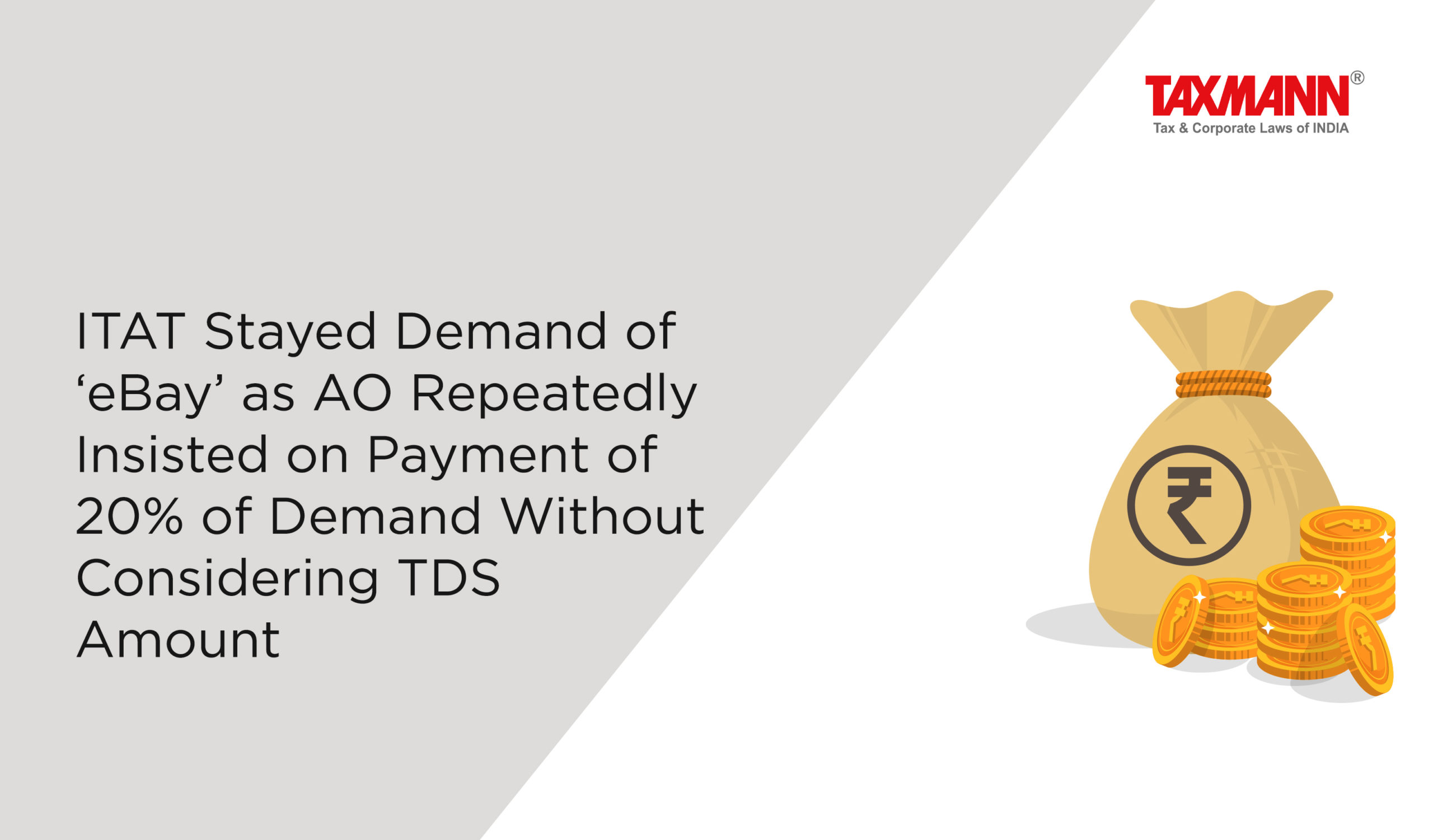ITAT Stayed Demand of ‘eBay’ as AO Repeatedly Insisted on Payment of 20% of Demand Without Considering TDS Amount
- Blog|News|Income Tax|
- 2 Min Read
- By Taxmann
- |
- Last Updated on 28 August, 2023

Case Details: eBay Singapore Services (P.) Ltd. v. Deputy Commissioner of Income-tax (IT) - [2023] 153 taxmann.com 661 (Mumbai-Trib.)
Judiciary and Counsel Details
-
- Amit Shukla, Judicial Member & B.R. Baskaran, Accountant Member
- Porus Kaka & Manish Kanth for the Appellant.
- Anil Sant for the Respondent.
Facts of the Case
Assessee filed application for stay of demand before the Assessing Officer (AO), wherein the AO passed an order requiring the assessee to pay 20% of the outstanding demand. The case of the assessee was that it had already paid Rs. 261.27 crores by way of TDS, which was more than 20% of the disputed tax liability. However, AO directed the assessee to pay 20 per cent of the net demand.
ITAT Held
The Tribunal ordered the AO to calculate 20% of the total disputed demand, not just the outstanding demand under section 156. The case was sent back for verification. If 20% of the disputed demand was paid, the AO should grant stay to the assessee.
However, AO insisted that the assessee to pay 20% of the total demand. Assessee filed second appeal before the Tribunal. Despite having given direction twice by the Tribunal, AO directed the assessee to pay 20 per cent of the outstanding demand without considering the TDS paid by the assessee.
The Mumbai Tribunal has ruled that the ‘outstanding demand’ may comprise various components that the assessee may not have even challenged or would result from various adjustments. Whereas, the disputed demand has to be seen qua the addition which has been disputed before this Tribunal on which the appeal has been filed under section 253(1).
In the instant case, the assessee deposited TDS on capital gain, but the entire addition was challenged before AO as well as before the Tribunal. Such TDS amount undisputedly was more than 20% of the demand as worked out by AO in his computation of demand relating to this addition.
Disclaimer: The content/information published on the website is only for general information of the user and shall not be construed as legal advice. While the Taxmann has exercised reasonable efforts to ensure the veracity of information/content published, Taxmann shall be under no liability in any manner whatsoever for incorrect information, if any.

Taxmann Publications has a dedicated in-house Research & Editorial Team. This team consists of a team of Chartered Accountants, Company Secretaries, and Lawyers. This team works under the guidance and supervision of editor-in-chief Mr Rakesh Bhargava.
The Research and Editorial Team is responsible for developing reliable and accurate content for the readers. The team follows the six-sigma approach to achieve the benchmark of zero error in its publications and research platforms. The team ensures that the following publication guidelines are thoroughly followed while developing the content:
- The statutory material is obtained only from the authorized and reliable sources
- All the latest developments in the judicial and legislative fields are covered
- Prepare the analytical write-ups on current, controversial, and important issues to help the readers to understand the concept and its implications
- Every content published by Taxmann is complete, accurate and lucid
- All evidence-based statements are supported with proper reference to Section, Circular No., Notification No. or citations
- The golden rules of grammar, style and consistency are thoroughly followed
- Font and size that’s easy to read and remain consistent across all imprint and digital publications are applied



 CA | CS | CMA
CA | CS | CMA
